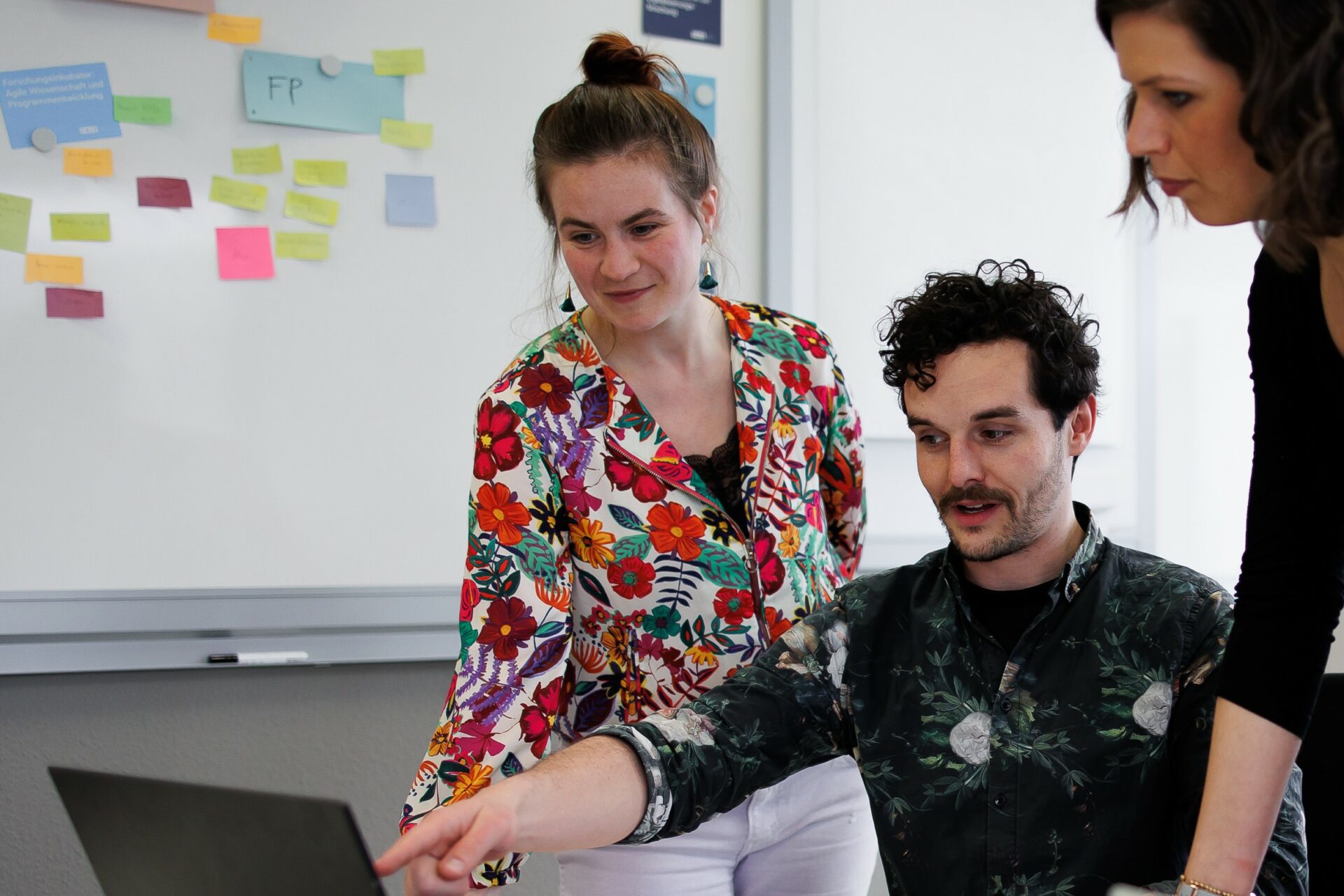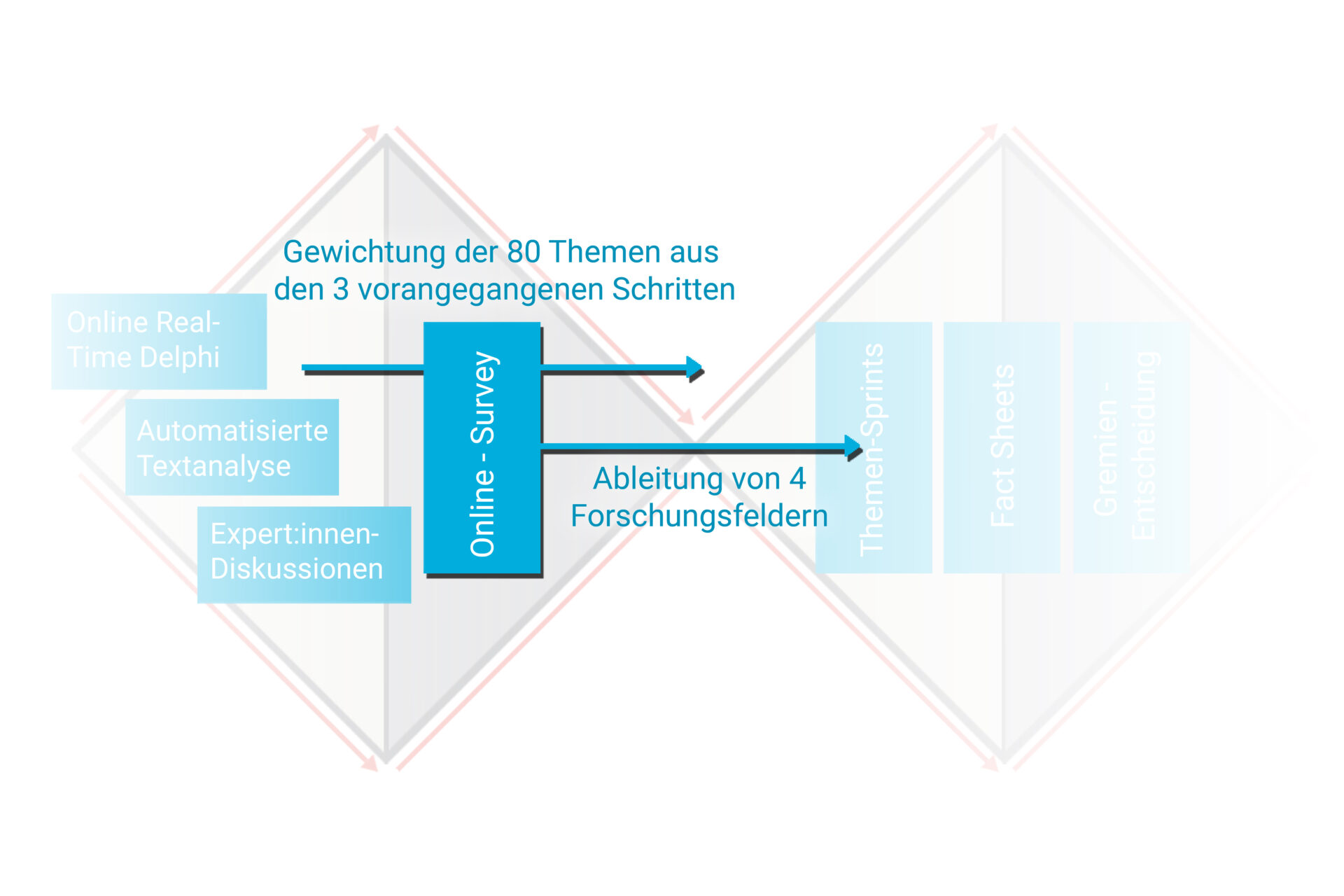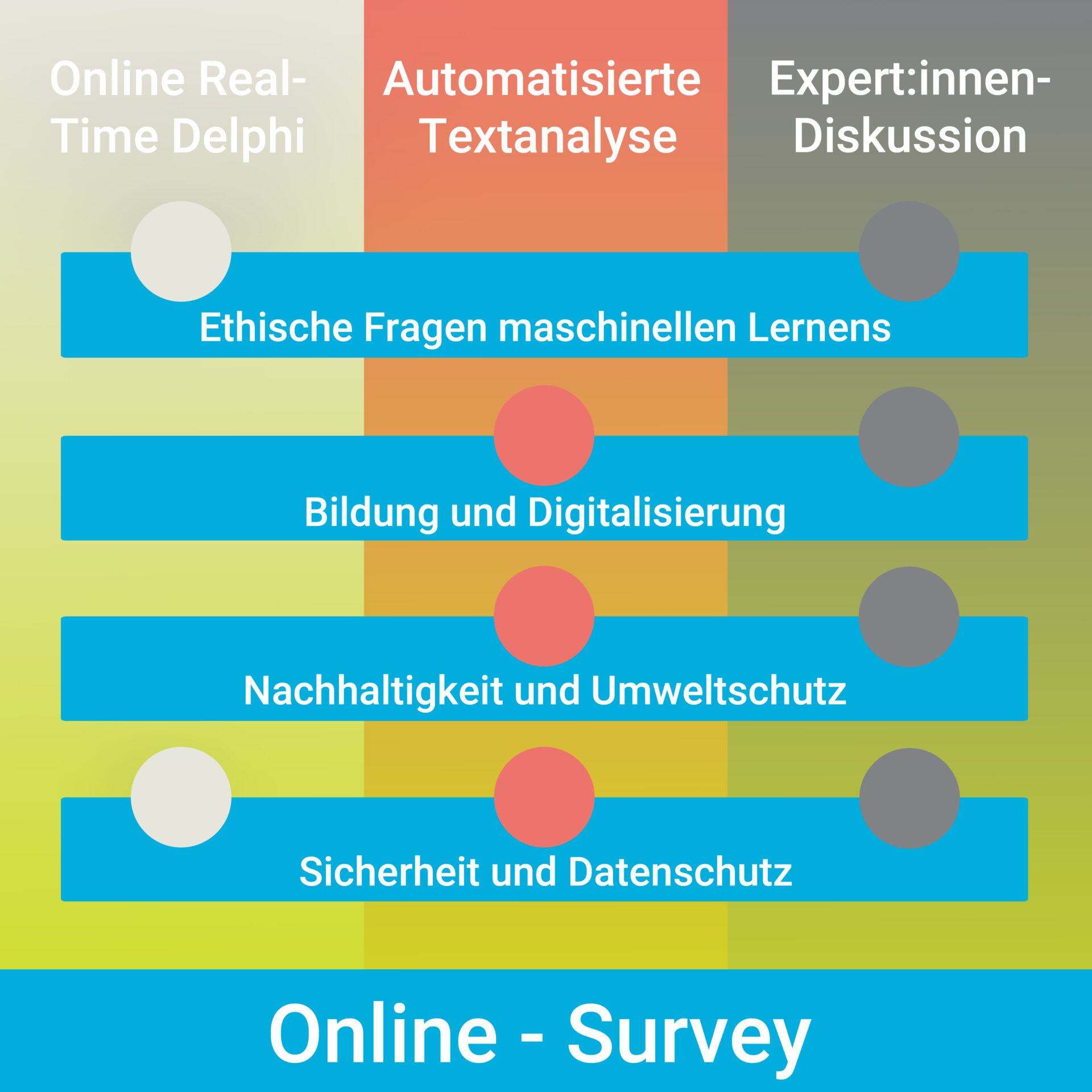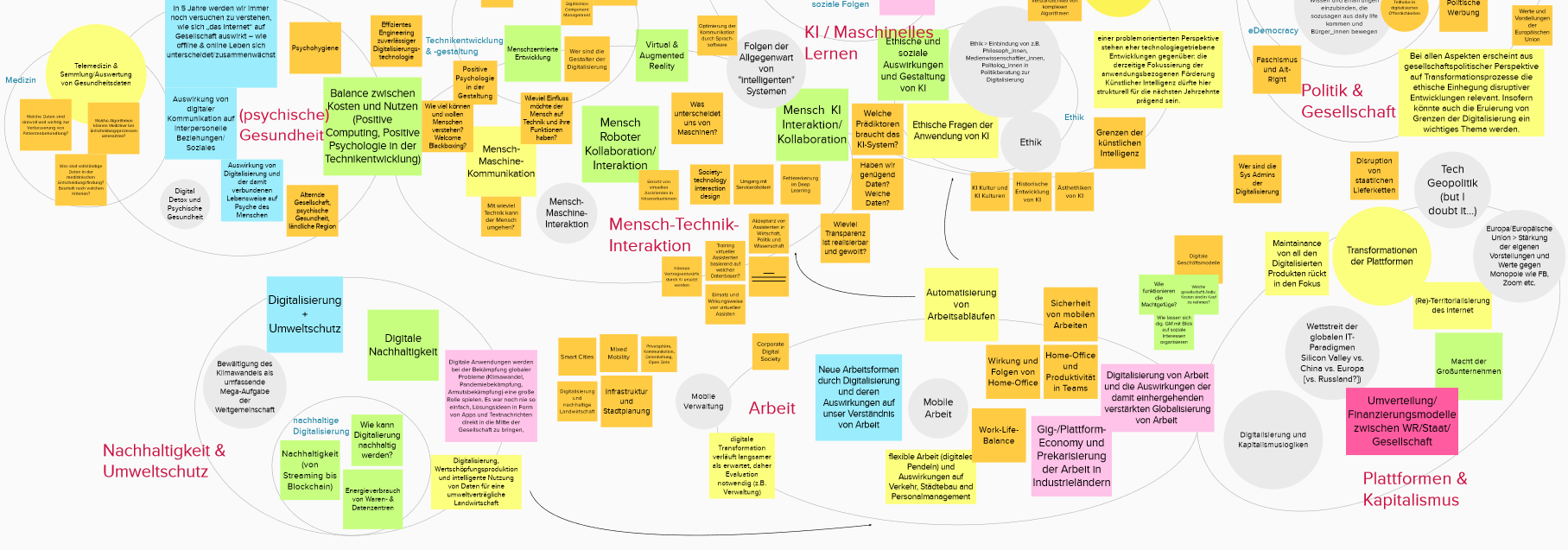Research Incubator: Online Survey

In a structured process, we sound out topics for CAIS research programs and projects. One of the final building blocks for this is the implementation of a broad-based online survey.

Which topics should definitely be researched in an increasingly digitized society? We determined the answers to this question in several studies (real-time Delphi study, expert discussions) with scientists from the field of digitization research. In addition, the analysis of trend-setting texts (automated text analysis) complements the numerous topics and guiding questions.
The results of the three aforementioned building blocks of topic identification were then condensed and compiled into a pool of more than 80 different research topics. In an online survey, these topics were assessed along their importance. The responses indicate which topics resonate across the breadth of society.
You can find the visualization of the whole topic finding process in this video.
Approx. 600 people voted on the importance of digitization topics
The survey’s diverse sample of 595 people is a good illustration of this. The participants in the survey included experts in digitization research, practitioners with different experiences, and members of the public. Thus, in addition to the economic and scientific context, the everyday, overall social aspects of digitization were also taken into account.
All participants voted on which of these topics they considered particularly important for research.
The importance of topics varies in the groups
There is a high degree of agreement on the importance of the topics, but also minor differences. Experts in digitization research tend to prefer abstract topics (e.g., transparency of algorithms), while members of the general public tend to rate everyday topics (e.g., education and digitization, IT security) as important. Respondents from the real world occupy similar topics as the experts in digitization research.
However, their selection shows a clear connection to their work context: education and digitization. In the sample, a large proportion of practitioners stated that they work in the field of education.
There is unanimity with regard to the topics that are not perceived as relevant (e.g., “digital twin”, “history and development of ‘artificial intelligence’ systems”).
Four focus areas and seven thematic sprints
Based on the survey, four main topics emerge that are of great importance across the surveyed groups:
- Ethical issues of machine learning (AI, algorithms, etc.).
- Sustainability & environmental protection in connection with digital technologies
- Security and data protection
- Education and digitization
These four focus areas, among others, reflect key themes from previous studies (Figure 2). These and any overlaps are discussed and fleshed out in a next step with different stakeholders in topic sprints. These topic sprints are condensed, co-creative workshop formats for interdisciplinary work. In this way, the different stages of the process always provide sufficient depth of detail on the previous broadly defined questions.
This overarching structure of continuous alternation between gathering and condensing insights is based on the Double Diamond method and recurs throughout the entire topic identification process.

Abbildung 2. Schnittmengen der Survey-Ergebnisse mit den vorangegangenen Studien.
Participating
Average age: 46.17 years
Gender: m= 334, w= 260, d= 3
Double Diamond
The Double Diamond is a visual representation of design and innovation processes. This process is clearly structured in different phases, which allow a continuous change between broad-based collecting (diverging) and solution-oriented condensing of findings (converging) to concrete results. Our approach is based on the form developed by the UK Design Council.
